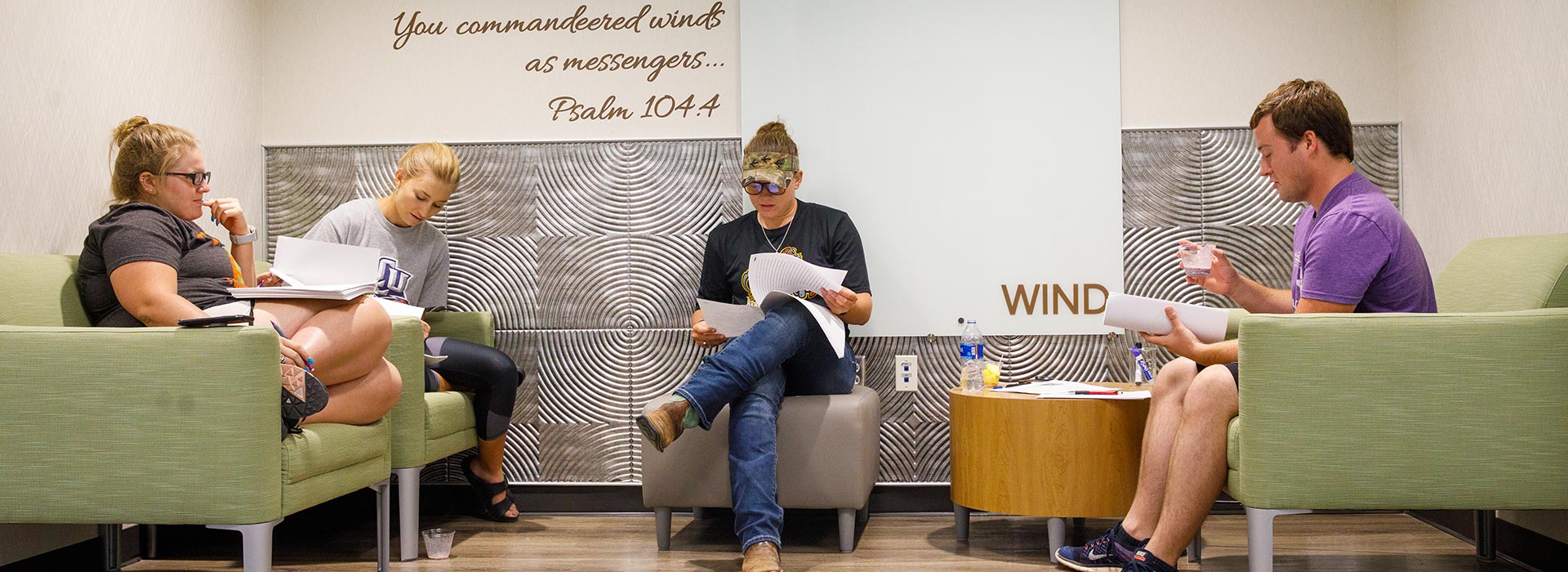
Why Become Involved in Undergraduate Research?
- To allow students to be creators of knowledge rather than consumers of knowledge.
- To develop critical thinking, creativity, problem solving and intellectual independence.
- To develop an understanding of research methodology.
- To enhance student learning through mentoring relationships with faculty.
- To improve opportunities for enrollment in graduate education.
- To provide effective career preparation.
- To open funding opportunities such as awards, grants and scholarships.
- To present at local, state, and national conferences.
Scholarly Inquiry
Our students find a variety of opportunities to do many different kinds of research under the guidance of one or more faculty members. In the sciences, several faculty members work with students on long-term research projects like the urban lake study or the project on the public health issues related to duck and geese migration. In the arts and humanities, our faculty mentor students as they explore topics as divergent as depictions of the Black Water Horizon event in paintings, representations of Plato's “Allegory of the Cave” in film, the decline of moral reasoning, and how athletes respond to pressure. Whatever the subject area, our faculty are eager to bring students along and guide their participation in the ongoing work of scholarly inquiry, whether that involves a current project that the mentor has designed or a new one that the student can develop.
Considering Undergraduate Research
Research projects and presentations completed as an undergraduate make impressive additions to graduate school applications and resumes. We are interested in research on academic topics across disciplines, including science, English, history, Bible, mathematics, criminal justice, psychology, business, etc. Speak with your academic advisor, your professor, or any of the members of our Advisory Council if you have any questions about making progress on plans for your project.
Starting Undergraduate Research
You can work with a faculty mentor on a project at any time during the academic year or perhaps even over the summer. Many times, such research is conducted as a part of a class or as a capstone assignment for your degree. Some projects, however, emerge from a faculty members own work, and your participation makes great contributions to such projects. In turn, you then have an opportunity to develop a poster or oral presentation on your work and its results.
Presenting Undergraduate Research
Each fall, the Institute and the Advisory Council review student applications for conference funding, offering support to those whose submissions are accepted for presentation at scholarly venues like the National Conference on Undergraduate Research.
Academic Achievement
In 2018, LCU student Blake Thornton collaborated with faculty members in the Natural Sciences Department to undertake a research project that examined the mentoring practices of fisheries sciences faculty at colleges and universities across the nation. Blake’s research culminated in him being invited to present his research at a professional conference in Puerto Rico. Their research was subsequently published in Fisheries, the American Fisheries Society journal. After graduating from LCU, Blake went on to complete a graduate degree and is now working as a fisheries biologist.
Blake is an example of what can be accomplished when students join long-term existing projects that faculty have or work with a mentor to initiate their own individual project. In recent years, other LCU undergraduate students have also successfully published their research. Additionally, the Rhodes Family Institute is proud to have supported many more students who have presented their research to local and national audiences. These types of opportunities provide valuable experiences in preparing students for graduate school or entering the workforce.
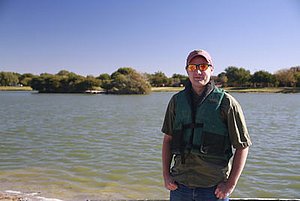
Listen to research by Josh Thomas, testing ground water viability and the effect that Canada goose migrations have on the safety of west Texas water sources.
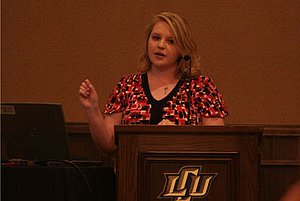
Listen to Stephanie Vander-Plas, a double major in Humanities and Biology tell her story of arriving at medical school having already presented valuable research in preventing blindness.

"NCUR 2013 was terrific, as always. I am such a fan of undergraduate research, and could never say enough how important it is for students to be given the opportunity to work on original research and present that work in a professional environment. I was approached by the editor of the Journal of Young Investigators, who asked me to submit my paper for publication in their journal. I plan to pursue that opportunity.
Watch Kristin's story in her own words
"NCUR 2013 was terrific, as always. I am such a fan of undergraduate research, and could never say enough how important it is for students to be given the opportunity to work on original research and present that work in a professional environment. This was my third consecutive NCUR presentation, and it was, yet again, extremely beneficial. My research attracted a large audience (approximately 75 people), and I received numerous compliments on the depth of the research and my presentation as a whole. I was approached by the editor of the Journal of Young Investigators, who asked me to submit my paper for publication in their journal. I plan to pursue that opportunity.
Additionally, I connected via social media with an NCUR 2014 Committee member, a professor from the University of Kentucky. He came by my presentation, and we talked for quite a while about my future plans. By the time our group left Wisconsin, he had asked me to consider attending NCUR 2014 as a graduate student committee member, helping the University of Kentucky Host Committee with social media and outreach during next year's conference. All in all, the trip was wildly successful. I'm only sorry I'm graduating and will be unable to present next year. That being said, I cannot overstate the importance of extending our Undergraduate Research Initiative. It is so beneficial to all participants and must continue."
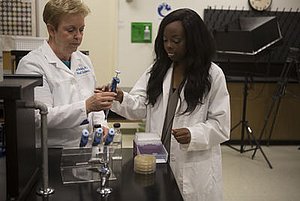
"Going to the National Conference for Undergraduate Research was a great experience. That was my first national conference, and it was interesting to see all the different areas of research presented. I did a poster presentation, and I enjoyed it immensely. It was good just to have conversations with faculty and students from all around the country. As for having faculty members attend with us, that was a great plus because it was good to have their support. It helped in keeping us, the students, organized throughout the trip.
Working on my own research was definitely difficult, but it was a very rewarding experience. Theory can be taught in the classroom, but actually getting to experience it has taught me so much more than I would have ever imagined. It has prepared me significantly for graduate school. I am very grateful for this experience!"

Samantha Lack completed her BA in History at LCU in May 2012. Her senior project focused on Henry VIII and the English Reformation, and she presented her findings at NCUR in March of the same year. She currently attends Texas Tech and is pursuing a MA in History. Samantha's current research focuses on children and their place in society in early modern England. She spent three weeks during the summer of 2014 in London examining documents and material items at the British Library, Victoria & Albert Museum, and the London Metropolitan Archives. She is expected to graduate with her MA in May of 2015 and will then begin work on her Ph.D.
Presenting my senior research at the National Conference for Undergraduate Research was a life-changing experience for me. The opportunity gave me the confidence to know that I could succeed in conducting research and presenting it at a national level, and solidified my decision to pursue graduate school. I was very appreciative of all of the support shown by the faculty that attended the conference. They made sure to attend every presentation by LCU students and they were always full of encouragement. I would definitely recommend NCUR to any student who is interested in pursuing graduate work or improving their resume or CV.
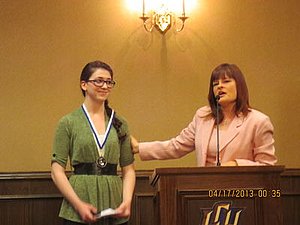
Caitlin Brinsfield presented a study entitled, “My Confession: A Visual Representation of Obsessive Compulsive Disorder. Brinsfield documented the autoethnographic process for her senior thesis—"My Confession: An Autoethnographic Study of Empowerment Through Self-Representation." Brinsfield presented her thesis at the National Art Education Association Conference and at the LCU Scholars Colloquium, where she won the Qualitative award. The art she created during this study was displayed in her senior art exhibition titled My Confession: A Visual Representation of Obsessive Compulsive Disorder.